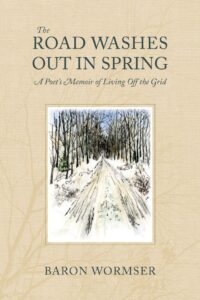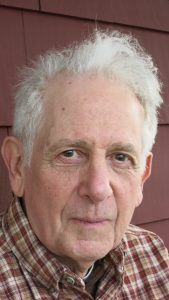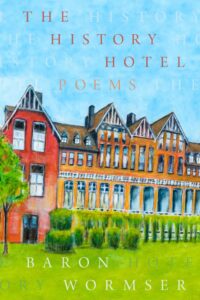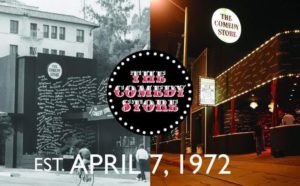Baron Wormser: The Road Washes Out in Spring
October 7, 2023 by David
Filed under Non-Fiction, WritersCast
 The Road Washes Out in Spring: A Poet’s Memoir of Living Off the Grid – Baron Wormser – Brandeis University Press – 9781684581603 – 214 pages – paperback – $24.95 – March 7, 2023 – ebook versions available at lower prices
The Road Washes Out in Spring: A Poet’s Memoir of Living Off the Grid – Baron Wormser – Brandeis University Press – 9781684581603 – 214 pages – paperback – $24.95 – March 7, 2023 – ebook versions available at lower prices
Baron Wormser is a poet and prose writer whose work I have been familiar with for many years. Back in the 1970s, he and his wife Janet, moved to rural Maine as part of the “back to the land” wave that had been inspired by hippies and the Stewart Brand’s influential Whole Earth Catalog and especially the writings of the now almost mythic Helen and Scott Nearing, vegetarians who pioneered simple living in the 1930s and 40s.
His memoir of that time was originally published almost twenty years ago and now there is a new edition of this meditative, almost poetic narrative of simple living.
Baron and his family lived in a house they built in Maine with no electricity or running water. Much like the Nearings, they raised (and canned) much of their own food, carried water from their well, and read through the long winter nights by the light of kerosene lamps.
As Wormser states early in this book, living off the grid was not meant to be a statement of anything. In fact, as complete novices to the life they set out to live, it turned out that they had built their house in a place that there was no electricity and initially they could not afford to pay to have power lines run to their house. As time went on, they embraced the simplicity of their rural lives and learned from their experienced neighbors, for whom life was not a choice and “lifestyle” would have been a meaningless term.
Wormser refuses any simple understanding or explanation for the lives he and his wife chose for the twenty five year period during which they raised their children and became integral to the local community. He writes about nature and the simple life without sentimentalizing anything, appreciates the good and faces the difficulties head on without failing to note the complexity of everything we prefer to think of as simple. He is a careful thinker and writer, and his poetic self is a presence at all times. Here is a lovely excerpt from the book:
If there is such a thing as a mutable eternity, it is snow falling in the woods. I am thinking of a windless, steady plummeting. Nothing is moving except for snowflakes. You can hear the snow faintly ticking on the pine needle branches. You can hear it descending—a soft sift of air. You are held in the hand of something enormous yet gentle, something extraordinary yet calming, something evanescent yet quite palpable (from a Latin word meaning “to touch gently”). Every surface receives the snow in its way. A large, fallen, curled maple leaf collects the snow in its center. A boulder”s stored heat resists the snow at first. Then its surface turns wet as if it were raining. Then with un-boulder-like delicacy a thin frizz accumulates. On top of the garden gate a fragile white skein begins to perch. Little, almost derby-like hats grow on the garden fence posts. The mown grass around the house fills in gradually. The stiff, frozen blades seem like little heights. Then the snow, as it mounts, receives itself. Another landscape is created and for months we live in that landscape.
When I was in my twenties, I shared the impulse to “head for the country,” where I tried and failed to make a go of living on the land. I greatly admire and appreciate what the commitment that Baron and his family made to live in Maine for a quarter century. And it was a deep pleasure to read this memoir of that time.
In 2000 Baron was appointed Poet Laureate of Maine by Governor Angus King. He currently resides in Montpelier, Vermont, with his wife. In 2009 he joined the Fairfield University MFA program. He works in schools with both students and teachers. Wormser has received the Frederick Bock Prize from Poetry and the Kathryn A. Morton Prize along with fellowships from Bread Loaf, the National Endowment for the Arts and the John Simon Guggenheim Memorial Foundation. In 2000 he was writer in residence at the University of South Dakota. Wormser founded the Frost Place Conference on Poetry and Teaching and also the Frost Place Seminar. His most recent book of poetry is The History Hotel, published by CavanKerry Press.
In other rooms and beyond those rooms
So much was occurring that went on happily
And unhappily, indifferent to protocols,
Brimming with anemones, half-heard melodies,
Averted glances.
(from “Elegy for the Poet Adam Zagajewski”)
Buy The Road Washes Out in Spring
Podcast: Play in new window | Download
Brook Simons: Nothing to Write Home About
December 16, 2019 by David
Filed under Non-Fiction, WritersCast
 Nothing to Write Home About – Brook Simons – 9781626468702 – Booklocker – paperback – 232 pages – $16.95 – April 15, 2014 – ebook available at lower prices
Nothing to Write Home About – Brook Simons – 9781626468702 – Booklocker – paperback – 232 pages – $16.95 – April 15, 2014 – ebook available at lower prices
In her late twenties, in 1977, Brook Simons picked up stakes and moved to Los Angeles from Connecticut, where she grew up on a farm in a small town, which happens to be right next door to where I grew up. While Brook and I did not know each other in Connecticut, she ended up marrying an old friend of mine from Yale, who also moved to LA to start a new life just after Brook did. So while we have never met, I felt a connection to this book from the outset.
Brook’s memoir is one of the bravest and rawest pieces of personal nonfiction I have ever read. I think the word insouciant fits who Brook was during the time of this story, which coincides with the rise of the drug fueled stand up comedians who gathered in Los Angeles around the Comedy Club and television studios of Hollywood in an anxiety and angst ridden explosion of personal exposure. Not all of the funny stuff was really funny, and the mostly male community of comics was pretty solidly male-centered and frankly not only self loathing and self degrading, but extremely misogynistic.
In some ways, brash young Brook fit in with this crew, as her story shows us so evocatively and painfully. She loved the energy, the drugs, and the comedy, but she also became attached to one of the comedians with whom she developed a highly dysfunctional and brutal relationship that ultimately led her to the brink of disaster on many levels.
There really is a lot to write home about here, and Brook writes it well. I don’t want to give away the story in any form. I think you should listen to our conversation and then read the book to understand the story Brook is telling on herself toward showing how danger and power can seduce us, take us beyond the places that are safe, and sometimes cause damage that goes far beyond what anyone should be able to experience. It’s a story that antedates #MeToo, but which ought to be required reading for every woman and man who cares about changing the power relationships between male and female in a positive way.
I was really stunned by this book and hope you will find this interview of interest, along with the book itself. You can buy it from my friends at RJ Julia Booksellers in Madison, Connecticut. Support independent bookselling and order Nothing to Write Home About here.
Podcast: Play in new window | Download
